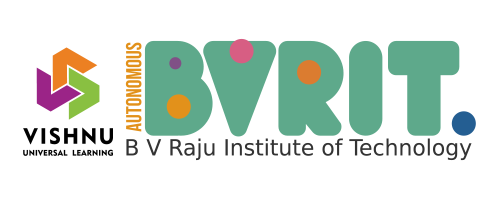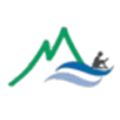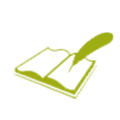| Faculty details attended to VEDIC programmes-2023 | |||||
| S. No | Faculty Name | Name of the programme | Date | Venue | No of days |
| 1 | Dr P. Vishnu | VEDIC CONCLAVE | 24-04-2023 & 25-04-2023 | VEDIC | 2 days |
| 2 | Dr. P. Archana Rao | ||||
| 3 | Dr. B. Ravi | ||||
| 4 | Dr Upendar S | ||||
| 5 | Dr. M. Sudheera | Semester planning and moodle review with II year II sem faculty | 29-03-2023 | BVRITN | 1 day |
| VEDIC CONCLAVE | 24-04-2023 | VEDIC | 1 day | ||
| 6 | C Pavani | Semester planning and moodle review with II year II sem faculty | 29-03-2023 | BVRITN | 1 day |
| 7 | G. Jyothi | ||||
| 8 | V. Balchander | Teaching Learning Conclave | 25-03-2023 | VEDIC | 1 day |
| 9 | N. Sadhana | Semester planning and moodle review with II year II sem faculty | 29-03-2023 | BVRITN | 1 day |
| 10 | D. Kiran Kumar | Teaching Learning Conclave | 28-01-2023 | VEDIC | 1 day |
| For the year 2022 | |||||
| S. No | Faculty Name | Name of the programme | Date | Venue | No of days |
| 1 | Dr P. Vishnu | Pharmacy Automation (Modeling and Simulation) – CHE, PHE, BME, ME and CSE | 01-09-2022 | Online | |
| Healthcare Systems Engineering, Operations, Management, and Data Science | 16-19-2022 | VEDIC | 1 | ||
| 2 | P. Archana Rao | Intellectual Learning for Engineering Applications (ILEA) | 07 to 09-11-2022 | VEDIC | 3 |
| 3 | Dr. Arnab Mandal | Teaching Learning Conclave | 07-05-2022 | VEDIC | 1 |
| 4 | Dr Upendar S | Teaching Learning Conclave | 09-07-2022 | VEDIC | 1 |
| Data Analytics workshop | 16 to 17-11-2022 | VEDIC | 2 | ||
| 5 | Dr. M. Sudheera | Instructional Design & Teaching Analytics for Teaching Excellence (IDEATE) | 26 to 28 July 2022 | VEDIC | 3 |
| Healthcare Systems Engineering, Operations, Management, and Data Science | 16-09-2022 | VEDIC | 1 | ||
| 6 | C Pavani | Pharmacy Automation (Modeling and Simulation) – CHE, PHE, BME, ME and CSE | 01-09-2022 | Online | |
| Healthcare Systems Engineering, Operations, Management, and Data Science | 16-19-2022 | VEDIC | 1 | ||
| 7 | G. Jyothi | Teaching Learning Conclave | 04-06-2022 | VEDIC | 1 |
| 8 | V. Balchander | ||||
| 9 | N. Sadhana | Pharmacy Automation (Modeling and Simulation) – CHE, PHE, BME, ME and CSE | 01-09-2022 | online | |
| Teaching Learning Conclave | 24-09-2022 | VEDIC | 1 | ||
| 10 | D. Kiran Kumar | Teaching Learning Conclave | 26-11-2022 | VEDIC | 1 |
| Presentation skills program | 04-01-2022 | VEDIC | 1 | ||
| 11 | Dr B. Ravi | New Faculty Orientation | 28-06-2022 | VEDIC | 1 |
| Teaching Learning Conclave | 28-10-2022 | VEDIC | 1 | ||
Academic year 2019-20
| S.NO | Title of the Workshop | Workshop dates | Faculty/Student attended | |
| Start Dtae | End Date | |||
| 1 | Unconscious Biased Workshop (UBW) | 21.10.2019 | 21.10.2019 | Mrs.Pavani |
| 2 | Course File verification | 21.10.2019 | 21.10.2019 | Mr.Balchander |
| 3 | STUDENT LEARNING IN INSTRUCTIONAL DESIGN (SLIDE) | 08.05.2019 | 10-05-2019 | Mr.Mahender |
| 4 | Course File verification | 16.10.2019 | 16-10-2019 | Ms.N.Sadhana |
| 5 | Writing effective research proposals | 19.02.2020 | 19-02-2020 | Ms.N.Sadhana |
| 6 | Immersive Instructional Technology (IIT) | 17.09.2019 | 19-09-2019 | Ms B.Swathi |
| 7 | Self Management skills (SMS) | 29.07.2020 | 29.07.2020 | III B.Tech – 31 Students |
| 8 | Immersive Instructional Technology (IIT) | 21.01.2020 | 23.01.2020 | Ms B.Swathi |
The Vishnu Educational Development and Innovation Centre (VEDIC) was founded in 2016 as a distinctive residential campus by Sri Vishnu Educational Society. This institution facilitates a collaborative environment, fostering interaction among faculty members, staff, and students. The unique aspect of VEDIC lies in its commitment to engaging with global experts to create enriching and innovative learning and teaching experiences.
VEDIC ACTIVITIES (2023-24)
Dr. M. Sudheera Received certificate of Excellency in VEDIC program for 100% completion of VEDIC workshop and inspiring all students.On 24-04-2023@ VEDIC.
FACULTY INDUCTION PROGRAM (FIP)
Dates: 22-05-2023 to 26-05-2023
Name of the faculty attended: Dr. S. Upendar
The IDEATE program, facilitated by Dr. Siva Kumar, began with participant introductions and group activities. Key topics included Outcome-Based Education (OBE) and Woldkowski’s model for adult learner motivation. Assignments were given to modify courses and implement reference topics. Sessions covered effective teaching strategies, class planning, and the use of props for difficult topics. Emphasis was placed on continuous improvement in teaching, quality assessments, and preventing plagiarism. The program concluded with a summary, verbal feedback, and a group photo, fostering a collaborative and engaging learning environment for faculty participants.
Day 1: Dr.Ravindra Babu led the Higher Education Ecosystem session, providing a comprehensive overview of India’s education system evolution. Dr. Shiva Kumar Krishnan followed with a focus on Outcomes-Based Education (OBE), emphasizing Bloom’s levels. Additionally, his session covered motivation and diverse student engagement strategies. Dr. Sanjay Dubey explored student engagement further, offering insights on positive interactions with various student types.
Day 2 & 3: Dr. K Srinivas, from NUEPA, led sessions on digital resources for academic courses and their implementation using Learning Management System (LMS) techniques such as Moodle, Screen casting, and Ed puzzle.
Day 4: Dr. Ravindra Babu presented on Academic Leadership, detailing essential leadership qualities for faculty in the academic system. Dr. Raju Aedla focused on research and professional development, providing guidance on approaching research problems and showcasing organizational support for faculty. Dr. Shiva Kumar Krishnan explained the use of Course Networking.Dr. Kaushik M delved into Environmental Consciousness and Sustainable Development Goals (SDGs), highlighting steps and responsibilities needed to contribute to environmental conservation.
Day 5: Ms. Jebaselvi and Mr. Augustine led sessions on Self-Awareness, Personality, and Student Programs. Dr. Ganesh MP provided insights into mentoring and understanding different behavioral aspects of students. The program concluded with participants expressing opinions and feedback, underscoring the significance of the five-day program in enhancing teaching skills.
The IDEATE program concluded by summarizing its key takeaways and seeking verbal feedback from participants. The program’s holistic approach to instructional design and teaching analytics aimed to equip faculty with valuable tools to enhance their teaching effectiveness. A collaborative group photo marked the successful conclusion of the program.
INSTRUCTIONAL DESIGN & TEACHING ANALYTICS FOR TEACHING EXCELLENCE (IDEATE)
Dates: 19-07-2023 to 21-07-2023
Name of the faculty attended: Dr. B Ravi
The IDEATE program, led by Dr. Siva Kumar, commenced on Day 1 with participant introductions and team-building activities, setting a collaborative tone. Dr. Siva Kumar delved into Outcome-Based Education (OBE), stressing the need for clear and specific course outcomes. The instructional design framework was explored, highlighting the balance between teacher-driven and student-driven approaches.
Day 2 focused on tackling challenging topics through the TAAPS model and crafting engaging course, session, and module plans. Participants were tasked with designing assignments related to difficult subjects, promoting a hands-on approach to learning.
On Day 3, attention shifted to effective presentation techniques, emphasizing the importance of dynamic and concise PowerPoint slides. Strategies for quality classroom engagement, mid-term surveys, and varied assessment methods were discussed, promoting a comprehensive understanding of effective teaching practices.The program’s second session on Day 3 delved into continuous improvement strategies for teaching. Practical tips to enhance assignment quality and prevent plagiarism were provided. Participants were encouraged to prepare star notes for effective communication of key concepts.
TEACHING LEARNING COLLOQUIUM(TLC)
This Colloquium on Teaching-Learning Practices (TLP) aimed to provide a platform for faculty members to share and discuss their innovative teaching methodologies and practices. The event had a structured schedule, with presentations divided into forenoon and afternoon sessions.
S.NO | Name of the faculty | Date | Location |
1. | V. Balchander | 25-03-2023 | VEDIC |
2. | Dr. B. Ravi | 17-06-2023 | Bhimavaram |
3. | C. Pavani | 19-08-2023 | VEDIC |
4. | Dr. P. Archana | 20-09-2023 | VEDIC |
5. | D. Kiran Kumar | 18-11-2023 | VEDIC |
|
|
|
|
The Colloquium commenced with an introductory session led by Siva Kumar Krishnan. Mr. Krishnan provided an overview of the day’s agenda, emphasizing the importance of sharing effective teaching practices.During this session, faculty members from various departments presented their TLP implementations. Each presentation was allotted a total of 9 minutes (6 minutes for presentation and 3 minutes for Q&A). The presentations covered a range of teaching strategies, methodologies, and their assessments.A lively question-and-answer discussion took place at the end of each session. The feedback focused on enhancing teaching practices and improving the overall learning experience for students.
The afternoon session continued with additional faculty presentations, following the same 9-minute format. The presentations showcased diverse teaching approaches, fostering an environment of collaborative learning. Before concluding the colloquium, a final Q&A session was held. Participants shared further insights, recommendations, and best practices. The exchange of ideas contributed to the continuous improvement of teaching methodologies across departments.
The colloquium concluded with a photo session, capturing the memorable moments of the event. Participants, organizers, and speakers gathered for a group photo, symbolizing the collaborative spirit of the VEDIC community.
Conclusion: The VEDIC Colloquium on Teaching-Learning Practices proved to be a successful and enriching event. The exchange of ideas, feedback, and recommendations showcased the commitment of VEDIC faculty members to continually improve and innovate in their teaching methods. The event fostered a sense of community and collaboration, emphasizing the importance of sharing effective teaching practices for the benefit of both educators and students.
Classroom Activities:
- Small Group Activity and Chart Presentations:
- Subject: a. Biopharmaceutics and pharmacokinetics,
Name of the faculty: C. Pavani
Topic: Classify the routes of drug administration along with mechanism and factors influencing absorption.
Activity description:
- In this activity, students are assigned specific roles within their groups: one as writer, another as reader, and third as the monitor, to ensure active participation.
- Each group is provided with a topic related to mechanisms of drug absorption & given 30 min to construct a model chart that represent their understanding.
- Followed by chart creation, each group presents their findings within 3 min presentation. Subsequently, students are allotted 15 min to individually create a mind map based on the presented topics.
- Outcome:
This activity enhanced understanding of drug absorption mechanisms throughcollaborative model chart creation and concise presentations.Improved retentionof knowledge and individual assessment throughpersonalized mind mapping evaluation.
- Subject:Material and energy balance computations
Name of the faculty: Dr. P. Archana
Topic:Perform basic process calculations involving unit conversion, physical quantities evaluation, Ideal gas law and Raoults law
Activity description:
- Choose a chemical/biochemical reaction, with the products of commercial /industrial importance.
- Explain the reaction mechanism in the form of story, represent pictorially the story on chart and Balance the reaction.
- Find the quantity of reactant/reactants (parts by weight) required to form 100 parts by weight of any one the desired product.
Outcome:
- Evaluate amount of product formed based on mass relations and balanced Stoichiometric equation and explanation of reaction mechanism in the form of story enhances creativity.
- Role Play and Class Quiz activity:
Subject: Biopharmaceutics and pharmacokinetics, Physical Pharmacy
Name of the faculty: C. Pavani, N. Sadhana
Topic: Illustrate the various phases of drug metabolism, enzymatic action on the drug metabolism, and mechanism of action of surfactants
- Students were grouped in to two teams, designated as ‘A’ and ‘B’. Team ‘A’ demonstrated the enzyme induction (15 min) while team ‘B’ showcased enzyme inhibition (15 min).
- After the group activity 10 min time is given to each team to prepare a set of questions and quiz was conducted between two teams. Each team will pose a question for other team regarding their respective topics, with 1min allotted for each response.A designated reader from each team presents their answer after team discussion. Marks were assigned based on the quality of the response.
Outcome:
As the student immersed themselves in scenarios and could be able to differentiate enzyme induction and inhibition after roleplay. Class quiz encouraged them to recall the information and to identify the areas where they need further clarification on the topic.
- Model Making (Group activity):
Subject:Fluid Mechanics and Mechanical Unit Operations
Name of the faculty: Dr. M. Sudheera
Topic: Rheological properties of fluids -classification of fluids
The aim of the group activity is
- Engaging all the students in the class
- Ability to break complex tasks into parts
- Plan and manage time
- Refine understanding through discussion and explanation.
Outcomes:
Students are able to Co-ordinate among themselves and sharing their ideas on the topic in many ways from different views. Also, able to identify which type of fluids are come under which type of fluid like Newtonian and Non-Newtonian. Capability of understanding improved through practical applications.
- Industrial visit:
Subject:Fluid Mechanics and Mechanical Unit Operations
Name of the faculty: Dr. M. Sudheera
Topic: Mechanical unit operations – orifice meters , filters ,spray chambers etc
- The main objective of industrial tour was to bridge the gap between classroom teaching and practical working environment.
- Provide students with a chance to meet industry leaders, professionals for sharing their knowledge and experience.
Outcome:
Students are visited to Ganapathi Sugar industry to observe various Mechanical unit operations involved and equipment’s like Orifice meters, rotary drum filters, reactors, spray chambers etc. This event was conducted on between the semester, as a practical implication to what they have learnt as a result of which solutions to the practical world problems were identified and were tried to solve in stipulated time. An report on Industrial visit is asked to submit by the students.
- Quizlet Flash Cards Activity:
Subject:Physical Pharmacy
Name of the faculty:N. Sadhana
Topic:Important Terminology
- Presented flashcards to make them understand terminology in physical pharmacy. That were projected in the classroom gave 2 min time to memorize with suitable illustration and write in the classwork.
Outcome:Student can able to remember definitions.
- Think Pair Share Activity:
Subject: Material and energy balance computations
Name of the faculty: Dr. P. Archana
Topic: Material balance without reaction -Difficulty in construction of block diagram with input and output, basis and evaluation of unknown quantities
Activity description:
The purpose: Perform material balance computations
Discussion guidelines: The students need to find the missing quantities in the process flow sheet of the given numerical question using the step-by-step procedure for material balance, as per the allotted time with their partner.
- Step 1: Think, time allotted 5 minutes.
- Step 2:Pair, Time allotted: 10 minutes. Students get into pairs as decided by faculty considering student attendance and active behaviour in class. The students to share what they came up with, with their partners and discuss.
- Step 3: Share, Time allotted: 10 minutes. Students come together as a class and have a whole class discussion on the approach they followed to do the material balance.
Outcome: Helps with collaboration and presentation skills. Students who are typically shy may feel more comfortable sharing with the class after sharing with a partner
| S.NO | Title of the workshop | workshop dates | Faculty/Student attended | |
| Start Dtae | End Date | |||
| 1 | Unconscious Biased Workshop(UBW) | 08.03.2019 | 08.03.2019 | Dr.Nandakumar |
| 2 | Unconscious Biased Workshop (UBW) | 04.02.2019 | 04.02.2019 | Mr. Sai Siddhardh |
| 3 | Inspire-Impact-Introspect Level –I | 13.02.2019 | 15.02.2019 | |
| 4 | STUDENT LEARNING IN INSTRUCTIONAL DESIGN (SLIDE) | 19.02.2019 | 21.02.2019 | Mr. Sai Siddhardh |
| 5 | Immersive Instructional Technology (IIT) | 17.06.2019 | 20.06.2019 | Mr. Sai Siddhardh |
| 6 | Maximizing academic research effectiveness & integration with teaching. | 4.10.2018 | 4.10.2018 | Dr.Nandakumar Mr.Balchander |
| 7 | Enhanced learning for engineering programs | 5.10.2018 | 5.10.2018 | Dr.Nandakumar Mr.Balchander |
| 8 | STUDENT LEARNING IN INSTRUCTIONAL DESIGN (SLIDE) | 12.03.2019 | 14.03.2019 | Ms.G.Jyothi |
| S.NO | Title of the workshop | workshop dates | Faculty/Student attended | |
| Start Dtae | End Date | |||
| 1 | Inspire-Impact-Introspect (Batch-7) | 30.10.2017 | 1.11.2017 | |
| 2 | FDP on Stress Management | 29.01.2018 | 29.01.2018 | Mr. Sai Siddhardh |
| 3 | Artificial Intelligence | 04.04.2018 | 04.04.2018 | Mr. Sai Siddhardh |
| 4 | Think-Technology-Transform | 13.06.2018 | 15.06.2018 | |
| 5 | Discovery Workshop | 09.11.2017 | 10.11.2017 | Mrs.Pavani |
| 6 | ILEA | 12.09.2017 | 15.09.2017 | III B.Tech -28 Students |
| S.NO | Title of the workshop | workshop dates | Faculty/Student attended | |
| Start Dtae | End Date | |||
| 1 | Scientific educational practices | 04.10.2016 | 06.10.2016 | Mrs.Archana |
| 2 | Theories in learning and Curriculum Design | 24.10.2016 | 26.10.2016 | Dr.Nandakumar |
| 3 | Cultivating Research | 14.10.2016 | 16.10.2016 | Dr.Nandakumar |
| 4 | Emotional intelligence, feedback analysis | 23.01.2017 | 24.01.2017 | Mr. Sai Siddhardh Mrs.Pavani |










